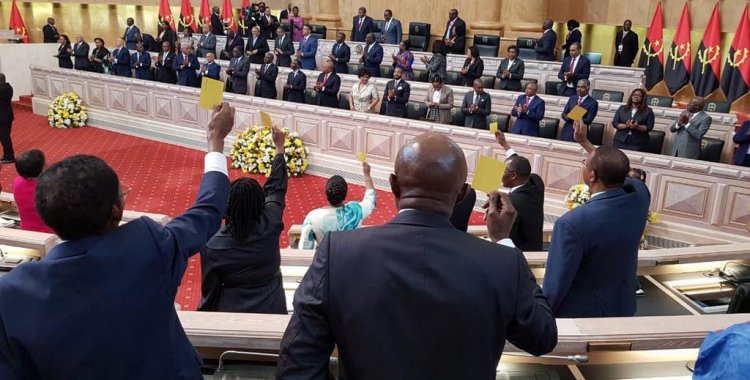The bill, a government initiative and submitted to parliament as a matter of urgency, was approved with 139 votes in favour of the Popular Movement for the Liberation of Angola (MPLA) and the National Front for the Liberation of Angola (FNLA), with no votes against and 63 abstentions from the National Union for the Total Independence of Angola (UNITA), the Broad Convergence for the Salvation of Angola-Electoral Coalition (CASA-CE) and deputies not part of the parliamentary group and the Social Renewal Party (PRS).
In the presentation of the diploma, the Minister of State and Head of the Civil House of the President of the Republic, Adão de Almeida, presented the reasons for the alteration of the diploma in force, of 2003, starting with a new designation, to be called Law of Civil Protection and Integral Management of the Risk of Disaster, "more comprehensive to give an end to a differentiated set of situations".
According to Adão de Almeida, the legislative proposal also provides for its adaptation to the Constitution in force in 2010, different from the context in which it was approved in 2003.
"Still at the formal level we can find a constitutional reason, in the perspective that the law in force enumerates bodies that are today constitutionally existent, attributes competences to bodies that are not aligned with the current constitutional vision and requires, from this point of view, alteration", said Adão de Almeida.
The governor pointed as an example the fact that the current law provides for powers of the Government or powers of the Council of Ministers, which are no longer in line with the current constitutional framework.
Adão de Almeida also spoke of "material conformation", taking into account that the law in force, in Article 4, which speaks of measures of an exceptional nature, "announces measures that are now unconstitutional", for example in limiting the movement or permanence of persons or vehicles of any nature at certain times and places.
"We are here in this example facing a situation which, if understandable in the light of the constitutional law of 1992, is today clearly unconstitutional", he added.
The minister clarified that this article of the law "allowed for a more comprehensive framework of limitation than that provided for under the 2010 Constitution, which only allows for suspension or limitation in the event of a declaration of a state of siege or state of emergency.
"This means that under the terms of the Basic Law of Civil Protection, such limitation, for example, of circulation, is now unconstitutional," he said.
The draft law, which will be discussed in detail on Friday, also aimed to define the concept of calamity.
"It was considered necessary to clarify a set of basic assumptions for the concept of disaster, namely the increase of natural, technological, health, environmental or motivated or caused by disaster, as part of the concept of disaster", he stressed.
According to Adão de Almeida, the disaster situation has already been foreseen in the law in force, aiming only to "clarify its concept and the measures that can be applied with the disaster situation".
The need to adapt to the current reality of the country is another reason.
"It is becoming increasingly clear in this area, that the situation of the covid-19 pandemic, is not a situation that is here for a short time, but the situation of the state of emergency does not necessarily have to accompany the existence of the pandemic," said the ruler.
According to the minister, "the objective is to create a legislative framework that, not being a state of emergency, allows the existence of a set of rules to face any situations of public calamity".
In the speeches several MEPs questioned the urgency of the approval of the legislative proposal, considering that it is a matter that deserves deep debates.
Some considered it unconstitutional because it gives the President of the Republic powers that can limit "activities involving the massive participation of citizens".
In response to Members' concerns, specifically the issue of whether or not to suspend fundamental rights, Adão de Almeida replied that the proposal does not specifically state the content of the measures to be taken in the event of a disaster.
"There is a kind of pre-comprehension that talking about measures on this means suspending rights, for example activities involving massive participation have been cited, is that to be suspended? No! You could say that in order to carry out [them] you have to sanitize the hands of the people going to the activity, ensure physical separation between people, make them wear masks, that's a rule about organizing massive activities, but it doesn't suspend fundamental rights," the minister stressed.







